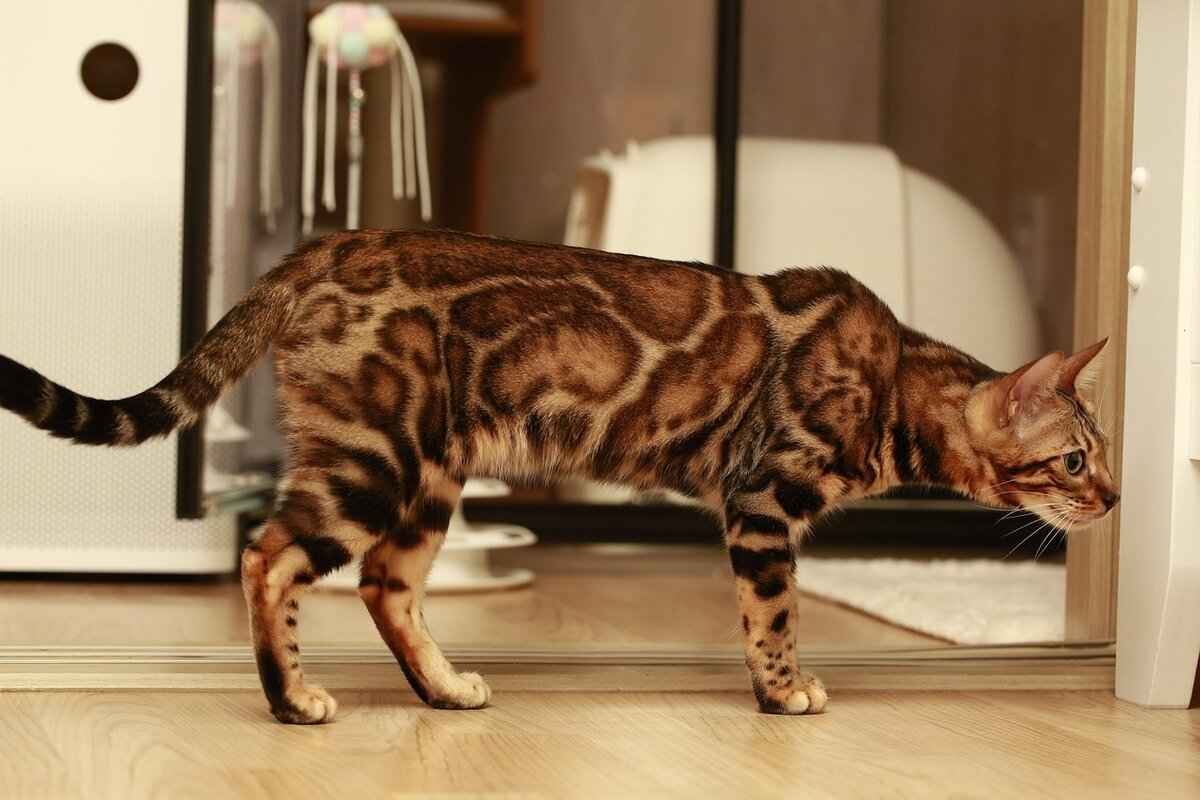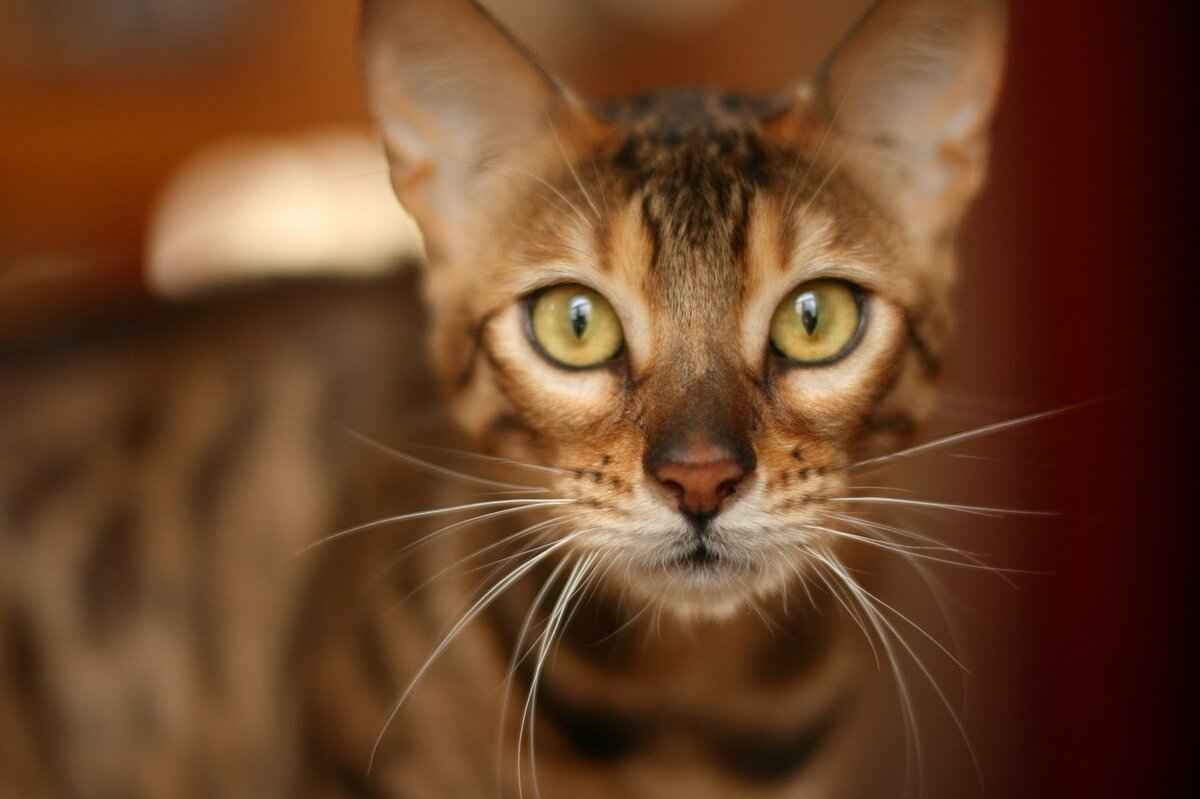West Bengal is a mesmerizing state in India, known for its rich culture, stunning landscapes, and diverse experiences. This article invites you to explore the unique attractions, culinary delights, and vibrant festivals that make West Bengal a must-visit destination.
1. The Cultural Heritage of West Bengal
West Bengal boasts a remarkable cultural heritage, deeply influenced by its history, art, and literature. The state is home to numerous festivals, traditional music, and dance forms that reflect its vibrant traditions. Visitors can immerse themselves in local customs, from traditional crafts to folk performances, making every trip a culturally enriching experience.
2. Natural Wonders: From the Himalayas to the Sundarbans
The geography of West Bengal is incredibly diverse, offering breathtaking scenery from the majestic Himalayas in the north to the unique mangrove forests of the Sundarbans in the south. Nature lovers can explore various national parks and wildlife sanctuaries, showcasing the state’s ecological richness.
- The Majestic Himalayas: The northern region features stunning landscapes ideal for trekking and exploration.
- The Sundarbans: A UNESCO World Heritage Site, known for its biodiversity and the Royal Bengal Tiger.
3. Culinary Delights of West Bengal
The cuisine of West Bengal is a delightful blend of flavors, characterized by its use of fresh ingredients. Signature dishes like fish curry and mishti doi (sweet yogurt) are a must-try. The street food scene is equally vibrant, offering local delicacies that reflect the state’s culinary heritage.
4. Festivals and Celebrations in West Bengal
West Bengal is renowned for its colorful festivals, the most notable being Durga Puja. This grand celebration attracts thousands of visitors and showcases the state’s rich traditions and community spirit.
5. Historical Sites and Landmarks
History enthusiasts will find West Bengal dotted with significant historical sites, including the iconic Victoria Memorial in Kolkata, which stands as a testament to the city’s colonial past.
Conclusion: Why West Bengal is a Must-Visit Destination
In conclusion, West Bengal’s rich culture, stunning landscapes, and diverse experiences make it an irresistible travel destination. Whether you are drawn by its history, cuisine, or natural beauty, West Bengal promises to leave a lasting impression on every traveler.
Plan Your Trip to West Bengal Today!
Ready to explore West Bengal? Start planning your trip and immerse yourself in the culture, cuisine, and natural beauty that this incredible state has to offer!

1. The Cultural Heritage of West Bengal
West Bengal is a state that encapsulates a profound cultural heritage, shaped by its rich history, diverse art forms, and vibrant literary traditions. The cultural landscape of West Bengal is a melting pot of various influences, making it an intriguing destination for anyone interested in exploring the essence of Indian culture.
One of the most significant aspects of West Bengal’s culture is its artistic expression. The state is renowned for its traditional crafts, including weaving, pottery, and painting. The intricate designs of Kantha embroidery and the vibrant colors of Shantiniketan art reflect the state’s rich artistic heritage. Each craft tells a story, often passed down through generations, preserving the cultural identity of the Bengali people.
Moreover, West Bengal’s literary legacy is equally impressive. It has produced some of the most celebrated writers and poets in India, such as Rabindranath Tagore, the first non-European Nobel laureate in Literature. His works not only highlight the beauty of the Bengali language but also emphasize themes of humanism and spirituality. The state continues to nurture literary talents, with numerous book fairs and literary festivals held throughout the year.
The festivals of West Bengal further exemplify its cultural vibrancy. Durga Puja, the most prominent festival, showcases elaborate decorations, artistic idol creations, and community participation, bringing people together in celebration. Other festivals like Poila Baisakh (Bengali New Year) and Vasant Utsav also reflect the state’s rich traditions and customs.
In conclusion, the cultural heritage of West Bengal is a dynamic tapestry woven from its history, art, and literature. Each facet contributes to a unique identity that continues to evolve while honoring its roots, making West Bengal a fascinating destination for cultural enthusiasts.

2. Natural Wonders: From the Himalayas to the Sundarbans
Natural Wonders: From the Himalayas to the Sundarbans
The natural beauty of West Bengal is nothing short of breathtaking, showcasing a diverse geography that ranges from the towering peaks of the Himalayas to the serene and unique Sundarbans mangrove forests. This remarkable state is a paradise for nature lovers and adventurers, offering a variety of landscapes that invite exploration and admiration.
1. The Majestic Himalayas
The northern part of West Bengal is graced by the majestic Himalayas, where the air is crisp and the views are stunning. The region is home to popular hill stations like Darjeeling and Kalimpong, both of which offer incredible trekking routes and scenic spots. Visitors can experience:
- Trekking Adventures: Trails such as the Sandakphu trek provide breathtaking panoramas of the world’s highest peaks.
- Tea Gardens: Darjeeling’s lush tea plantations are a sight to behold, where one can enjoy a cup of world-famous tea while soaking in the views.
2. The Sundarbans: A UNESCO World Heritage Site
Traveling south, the Sundarbans emerge as a unique ecosystem, recognized as a UNESCO World Heritage Site. This vast mangrove forest is renowned for its rich biodiversity, including the elusive Royal Bengal Tiger. Visitors can engage in:
- Wildlife Safaris: Boat tours offer a chance to spot diverse wildlife, including various bird species and crocodiles.
- Ecological Tours: Learn about the importance of mangroves in combating climate change and preserving marine life.
Conclusion
West Bengal’s diverse geography is a treasure trove for those seeking adventure and natural beauty. Whether you find yourself trekking in the Himalayas or exploring the lush mangroves of the Sundarbans, each experience is sure to leave an indelible mark on your heart. Embrace the natural wonders of this incredible state and create memories that will last a lifetime!
2.1 The Majestic Himalayas
The Majestic Himalayas of West Bengal are a breathtaking spectacle, offering a unique blend of natural beauty and adventure. This region is renowned for its stunning landscapes, rich biodiversity, and vibrant hill stations that attract trekkers and nature lovers from around the globe.
Among the most popular trekking routes are:
- Sandakphu Trek: This is the highest peak in West Bengal, providing panoramic views of the Kanchenjunga and Everest ranges. The trek is challenging yet rewarding, making it a favorite among experienced trekkers.
- Goecha La Trek: Located near the Khangchendzonga National Park, this trek offers mesmerizing views of the Khangchendzonga mountain. It is ideal for those seeking a mix of adventure and tranquility.
- Singalila Ridge Trek: This trek is famous for its diverse flora and fauna. It offers a chance to spot rare species while enjoying the stunning vistas of the surrounding mountains.
In addition to trekking, the hill stations in this region are worth exploring:
- Darjeeling: Known as the “Queen of Hills,” Darjeeling is famous for its tea plantations, stunning views, and the iconic Darjeeling Himalayan Railway, a UNESCO World Heritage site.
- Kalimpong: A quieter alternative to Darjeeling, Kalimpong is known for its beautiful monasteries, vibrant flower markets, and panoramic views of the Himalayas.
- Mirik: This lesser-known gem is famous for its serene lake, tea gardens, and pleasant climate, making it a perfect getaway for peace seekers.
Whether you are an adventure enthusiast or someone seeking tranquility, the northern region of West Bengal offers a plethora of experiences that cater to all kinds of travelers. The majestic Himalayas are not just a destination; they are an invitation to explore, discover, and connect with nature.
2.1.1 Darjeeling: The Queen of Hills
Darjeeling, often referred to as the Queen of Hills, is a breathtaking hill station nestled in the foothills of the Himalayas. Known for its stunning tea plantations and panoramic views, it is a destination that captivates every visitor. This article explores the unique charm of Darjeeling and the myriad activities that make it a popular tourist hotspot.
The town is celebrated for its tea gardens, which produce some of the finest teas in the world. Visitors can take guided tours through these lush plantations, learning about the tea-making process while enjoying the scenic beauty that surrounds them. The Darjeeling Tea is not just a beverage; it is a cultural experience that reflects the heritage of the region.
Another highlight of Darjeeling is the Darjeeling Himalayan Railway, a UNESCO World Heritage Site. This narrow-gauge railway offers a unique travel experience, winding through picturesque landscapes and offering stunning views of the mountains. Travelers can hop on the toy train for a leisurely ride, making it a memorable part of their journey.
For those seeking adventure, Darjeeling is a gateway to numerous trekking routes. The Sandakphu Trek, for instance, leads trekkers to the highest point in West Bengal, providing breathtaking views of the Kanchenjunga and Everest ranges. Nature enthusiasts can also explore the Singalila National Park, home to diverse flora and fauna.
Moreover, Darjeeling’s vibrant culture is reflected in its local festivals, such as the Darjeeling Tea Festival and the Losar Festival, celebrated by the local Tibetan community. These events offer visitors a chance to immerse themselves in the rich traditions and customs of the region.
In conclusion, Darjeeling is more than just a hill station; it is a blend of natural beauty, cultural richness, and adventure. Whether you’re sipping tea while overlooking verdant hills or trekking through majestic landscapes, Darjeeling promises an unforgettable experience for every traveler.
2.1.2 Kalimpong: A Hidden Gem
Kalimpong: A Hidden Gem
Kalimpong, nestled in the foothills of the Himalayas, is a quieter alternative to its more famous neighbor, Darjeeling. This charming hill station is not only known for its breathtaking landscapes but also for its rich cultural heritage and serene atmosphere. Visitors seeking a peaceful retreat will find Kalimpong to be a perfect getaway.
One of the most captivating aspects of Kalimpong is its stunning monasteries. The town is home to several beautiful Buddhist monasteries, including the Deolo Monastery and the Tharpa Choling Monastery. These spiritual sites offer a glimpse into the local culture and provide a tranquil environment for meditation and reflection. The intricate architecture and peaceful surroundings make them a must-visit for any traveler.
In addition to its monasteries, Kalimpong boasts lush gardens that are a feast for the senses. The Kalimpong Science Centre and Gandhi Road are home to vibrant flower gardens, showcasing a variety of exotic plants and flowers. The Durpin Dara Hill offers panoramic views of the surrounding mountains and valleys, making it an ideal spot for photography enthusiasts.
For those interested in local culture, Kalimpong’s bustling markets offer a unique shopping experience. The local handicrafts are renowned, with items such as handwoven textiles and traditional Tibetan artifacts readily available. Engaging with local artisans provides insight into the rich cultural tapestry of the region.
Outdoor enthusiasts will find plenty of activities in and around Kalimpong. From trekking in the nearby hills to exploring the Teesta River for rafting, there is no shortage of adventure. The region’s cooler climate and stunning scenery make it a great destination for nature lovers.
In conclusion, Kalimpong is a hidden gem that offers a unique blend of natural beauty, cultural richness, and tranquility. Whether you are seeking spiritual solace, adventure, or simply a place to unwind, Kalimpong has something for everyone. Plan your visit to discover the charm of this enchanting hill station!
2.2 The Sundarbans: A UNESCO World Heritage Site
The Sundarbans, a UNESCO World Heritage Site, is a breathtaking mangrove ecosystem located in the delta region of the Padma, Meghna, and Brahmaputra river basins. This unique area is not only renowned for its stunning landscapes but also for its incredible biodiversity, making it one of the most important ecological regions in the world.
Spanning across India and Bangladesh, the Sundarbans is home to the majestic Royal Bengal Tiger, which is a symbol of strength and grace. This elusive predator thrives in the dense mangrove forests, showcasing the delicate balance of nature in this vibrant ecosystem. The presence of the Royal Bengal Tiger highlights the ecological significance of the Sundarbans, as it plays a crucial role in maintaining the health of its habitat.
Visitors to the Sundarbans can embark on thrilling adventures, such as boat safaris through the winding waterways. These excursions allow travelers to witness the diverse wildlife, including spotted deer, crocodiles, and various bird species, all while surrounded by the lush greenery of the mangroves. The experience is enhanced by the serene beauty of the landscape, where the interplay of water and land creates a mesmerizing backdrop.
Moreover, the Sundarbans is a critical area for conservation efforts due to its unique flora and fauna. Various organizations are working tirelessly to protect this fragile ecosystem, ensuring that future generations can enjoy its wonders. Eco-tourism initiatives are also gaining traction, allowing travelers to engage in responsible tourism while supporting local communities.
In conclusion, the Sundarbans is not just a destination for adventure seekers; it is a vital ecosystem that requires our attention and respect. Exploring this magnificent area offers a unique opportunity to connect with nature and appreciate the intricate relationships that sustain life within this remarkable mangrove forest.

3. Culinary Delights of West Bengal
West Bengal’s cuisine is a vibrant tapestry of flavors, deeply rooted in the state’s rich cultural heritage. This culinary journey reflects the influences of various communities, making it a must-try for any food lover. From aromatic spices to delectable sweets, the dishes of West Bengal are a celebration of tradition and innovation.
The state’s culinary landscape is dominated by rice and fish, staples that form the backbone of many meals. One cannot visit West Bengal without indulging in Shorshe Ilish, a classic dish made with hilsa fish cooked in mustard sauce. This dish is often considered the pride of Bengali cuisine, showcasing the unique flavors of the region.
Another iconic dish is Chingri Malai Curry, a luxurious prawn curry cooked with coconut milk, offering a rich and creamy texture that pairs perfectly with steamed rice. For those who prefer vegetarian options, Shukto is a must-try—a bitter-sweet medley of seasonal vegetables that is both nutritious and flavorful.
Street food in West Bengal is equally enticing. The bustling streets are filled with vendors offering Puchka (pani puri), Jhal Muri (spicy puffed rice), and Kathi Rolls, which are wraps filled with spiced meats or vegetables. These snacks provide a glimpse into the local lifestyle and are perfect for those looking to experience the authentic flavors of West Bengal.
No discussion of West Bengali cuisine is complete without mentioning its exquisite sweets. Rasgulla and Sandesh are among the most beloved desserts, made from chhena (fresh cheese) and often flavored with cardamom or saffron. These sweets are not just treats but a significant part of Bengali celebrations and festivals.
In conclusion, West Bengal’s culinary delights are a reflection of its rich cultural heritage and diversity. Whether you are savoring a traditional meal or indulging in street food, the flavors of West Bengal promise a memorable gastronomic experience that is not to be missed.
3.1 Signature Dishes to Savor
West Bengal’s culinary landscape is a vibrant tapestry of flavors, showcasing a rich heritage that is both diverse and delectable. When visiting this culturally rich state, indulging in its signature dishes is a must. Here are some iconic culinary delights that every visitor should not miss:
- Shorshe Ilish: This is a classic Bengali dish featuring hilsa fish cooked in a mustard sauce. The combination of the fish’s rich flavor with the pungency of mustard creates an unforgettable taste experience.
- Chingri Malai Curry: A luxurious prawn curry made with coconut milk, this dish is both creamy and aromatic. It’s often served with steamed rice, making it a perfect comfort food.
- Bhapa Ilish: Steamed hilsa fish marinated with mustard paste and spices, this dish is a delicacy that highlights the simplicity yet richness of Bengali cuisine.
- Mishti Doi: A traditional Bengali dessert, mishti doi is sweetened yogurt that is often flavored with cardamom. Its creamy texture and sweetness make it a delightful end to any meal.
- Sandesh: This is a popular sweet made from fresh paneer (chenna). Sandesh comes in various flavors and shapes, often garnished with pistachios or saffron, making it a festive treat.
Each of these dishes tells a story of West Bengal’s cultural heritage and culinary traditions. Whether you are dining in a local eatery or enjoying a home-cooked meal, these signature dishes offer a taste of the state’s vibrant food culture. Don’t forget to pair your meals with a refreshing glass of Aam Pora Shorbot, a traditional mango drink that complements the rich flavors of Bengali cuisine.
In summary, West Bengal’s culinary offerings are not just meals; they are experiences that reflect the soul of the region. To truly appreciate the essence of West Bengal, one must savor these iconic dishes that have been passed down through generations.
3.2 Street Food: A Taste of Local Life
Street food in West Bengal is not just about food; it’s a vibrant cultural experience that offers a glimpse into the local lifestyle. The streets are alive with the sounds and smells of various delicacies, making it a must-try for any visitor. This article will explore popular street food items, their unique flavors, and the best places to find them.
West Bengal’s street food scene is a melting pot of flavors, influenced by its rich culinary heritage. Here are some of the most popular street food items you should try:
- Puchka (also known as Pani Puri): A crispy hollow puri filled with spicy tamarind water, mashed potatoes, and chickpeas. It’s a burst of flavors in every bite!
- Kathi Roll: A delicious wrap made with paratha and filled with spiced chicken, mutton, or vegetables. Perfect for a quick snack on the go.
- Jhal Muri: A spicy puffed rice snack mixed with vegetables, mustard oil, and spices. It’s a popular evening snack that’s both tasty and filling.
- Chowmein: A stir-fried noodle dish that has become a staple in street food culture. Vendors add their twist with various vegetables and sauces.
- Macher Jhol: A traditional fish curry served with rice, often sold in small stalls. It’s a hearty meal that captures the essence of Bengali cuisine.
To truly experience this culinary delight, visit local hotspots such as:
| Location | Specialty |
|---|---|
| College Street, Kolkata | Puchka |
| Park Street, Kolkata | Kathi Rolls |
| New Market, Kolkata | Jhal Muri |
| Gariahat Market, Kolkata | Chowmein |
In conclusion, indulging in street food in West Bengal is a delightful way to connect with the local culture. From bustling markets to roadside stalls, the variety of flavors and dishes available is sure to satisfy any palate. Don’t miss the chance to savor these culinary treasures during your visit!

4. Festivals and Celebrations in West Bengal
West Bengal is a vibrant state in India, renowned for its colorful festivals that reflect its rich cultural heritage and traditions. These celebrations not only bring communities together but also attract visitors from across the globe. This section delves into the major festivals of West Bengal, highlighting their significance and the unique experiences they offer.
One of the most iconic festivals is Durga Puja, celebrated with immense enthusiasm and grandeur. This festival honors the goddess Durga and marks the victory of good over evil. The streets of Kolkata transform into a visual spectacle with elaborately decorated pandals (temporary structures), artistic idols, and vibrant processions. The festival is not just a religious observance; it is a cultural extravaganza that includes music, dance, and theatrical performances.
Another significant celebration is Poila Baisakh, the Bengali New Year. This festival is marked by festive feasts, traditional music, and colorful fairs. Families come together to celebrate with special dishes and cultural programs, showcasing the rich traditions of Bengali life.
Jagaddhatri Puja is yet another festival that highlights the diversity of celebrations in West Bengal. Primarily celebrated in the city of Chandannagar, it honors the goddess Jagaddhatri and features grand processions, music, and dance, creating a lively atmosphere that captivates the local community.
Additionally, the Durga Puja and Poila Baisakh are complemented by various regional festivals such as Vasant Utsav, which welcomes the spring season with colorful celebrations and cultural performances. Each festival in West Bengal is a testament to the state’s rich traditions and vibrant community spirit.
In conclusion, the festivals of West Bengal are not just events; they are a celebration of life, culture, and togetherness. Each festival offers a unique glimpse into the traditions that define this beautiful state, making it a must-visit destination for anyone seeking to experience the essence of Bengali culture.
4.1 Durga Puja: The Grandest Festival
Durga Puja is not just a festival; it is a grand celebration that encapsulates the essence of West Bengal’s rich cultural heritage. Every year, millions of devotees and tourists flock to this vibrant state to witness the breathtaking festivities that last for several days. This article delves into the history, rituals, and the magnificent splendor of this iconic celebration.
Historically, Durga Puja dates back to the 16th century, with roots in the worship of the goddess Durga, who symbolizes the victory of good over evil. The festival marks the annual visit of Goddess Durga to her maternal home, accompanied by her children, Ganesh, Lakshmi, Saraswati, and Kartik. The elaborate rituals performed during this time are steeped in tradition and showcase the artistic prowess of the local artisans.
The rituals associated with Durga Puja are a spectacle to behold. The festivities begin with Mahalaya, a day dedicated to invoking the goddess’s spirit. This is followed by the Shashthi, Saptami, Ashtami, and Navami days, each filled with unique rituals, prayers, and cultural performances. On Dashami, the final day, the idols of the goddess are immersed in water, symbolizing her return to Mount Kailash.
| Day | Significance |
|---|---|
| Mahalaya | Invoking the goddess |
| Shashthi | Beginning of the festivities |
| Ashtami | Main day of worship |
| Dashami | Immersion of idols |
The grandeur of Durga Puja is evident in the elaborate pandals (temporary structures) that are constructed throughout the state. These pandals are often themed and decorated with intricate art, showcasing the creativity and craftsmanship of local artisans. Each pandal tells a unique story, drawing visitors from far and wide.
In addition to the religious aspects, Durga Puja is a time for community bonding. Families come together to celebrate, share meals, and partake in cultural events, including dance and music performances. The festival fosters a sense of unity and joy, making it a truly special time for all.
In conclusion, Durga Puja is more than just a festival; it is a vibrant expression of West Bengal’s culture, spirituality, and community spirit. Whether you are a local or a visitor, witnessing this grand celebration is an unforgettable experience that showcases the heart and soul of the region.
4.2 Other Notable Festivals
While Durga Puja is undoubtedly the crown jewel of West Bengal’s festival calendar, the state is rich in a variety of other celebrations that reflect its cultural diversity and traditions. These festivals, celebrated with great enthusiasm, offer a glimpse into the vibrant life of the Bengali people.
- Poila Boishakh: The Bengali New Year, celebrated in April, marks the beginning of the agricultural year. People adorn new clothes, prepare traditional dishes, and participate in cultural events, making it a joyous occasion.
- Viswakarma Puja: This festival honors Viswakarma, the divine architect. Celebrated mainly by craftsmen and workers, it involves decorating tools and machines, showcasing the significance of labor and craftsmanship in Bengali culture.
- Kali Puja: Observed on the new moon night of the Hindu month of Kartik, this festival is dedicated to Goddess Kali. The rituals involve elaborate prayers and the lighting of lamps, creating a mesmerizing atmosphere.
- Jagadhatri Puja: Celebrated primarily in Chandannagar, this festival honors Goddess Jagadhatri, a form of Durga. The processions and cultural performances during this festival attract numerous visitors.
- Christmas: With a significant Christian population, Christmas is celebrated with enthusiasm in West Bengal. Festivities include midnight masses, carol singing, and festive feasts, showcasing the state’s religious harmony.
These festivals, among others, not only highlight the spiritual richness of West Bengal but also foster a sense of community and belonging among its residents. Each celebration is a unique experience, drawing both locals and tourists into the heart of Bengali culture.

5. Historical Sites and Landmarks
West Bengal is a treasure trove of historical sites that offer a glimpse into the rich tapestry of its past. From ancient temples to colonial-era architecture, each landmark tells a unique story that reflects the region’s cultural heritage. This section highlights key sites that every traveler should explore.
- The Victoria Memorial: This iconic structure in Kolkata is not just a museum; it is a symbol of the city’s colonial history. The grand architecture, inspired by the Taj Mahal, features beautiful gardens and houses numerous artifacts that celebrate India’s history.
- Howrah Bridge: An engineering marvel, the Howrah Bridge is one of the busiest cantilever bridges in the world. Spanning the Hooghly River, it connects Kolkata to Howrah and is a testament to the city’s industrious spirit.
- Belur Math: Founded by Swami Vivekananda, Belur Math is a serene place of worship that combines Hindu, Christian, and Islamic architectural styles. The math serves as the headquarters of the Ramakrishna Order and is a center for spiritual learning.
- Murshidabad: Once the capital of Bengal, Murshidabad is home to several palaces and historical buildings, including the Hazarduari Palace, which boasts a thousand doors and is a stunning example of Indo-Saracenic architecture.
- Shantiniketan: Founded by Rabindranath Tagore, this university town is famous for its unique blend of art, culture, and education. The Visva-Bharati University is a UNESCO World Heritage Site, attracting visitors interested in art and literature.
Each of these sites not only showcases the architectural brilliance of their time but also serves as a reminder of the rich history that has shaped West Bengal. Travelers should take the time to explore these landmarks to truly appreciate the heritage of this vibrant state.
5.1 The Victoria Memorial
The Victoria Memorial stands as a breathtaking architectural masterpiece in the heart of Kolkata, embodying the city’s colonial past and cultural heritage. Built between 1906 and 1921, this grand structure was commissioned in memory of Queen Victoria, the Empress of India, and has since become a significant landmark.
Designed by the renowned architect Sir William Emerson, the memorial showcases a blend of British and Mughal architectural styles. Its white Makrana marble facade glistens under the sun, attracting visitors from around the globe. The memorial is not only a tribute to Queen Victoria but also a reflection of the artistic and historical narratives of the region.
Inside, the Victoria Memorial houses a vast collection of artworks, manuscripts, and historical artifacts. The museum features over 30 galleries, including paintings by famous artists such as Ravi Varma and Abanindranath Tagore. Visitors can explore the intricate details of these works, which provide insight into India’s rich cultural tapestry.
The surrounding gardens, designed by Lord Redesdale, are a serene escape, featuring lush lawns, fountains, and beautiful flowerbeds. This peaceful environment makes it a popular spot for both tourists and locals seeking a moment of tranquility amidst the bustling city.
Moreover, the Victoria Memorial plays a crucial role in Kolkata’s cultural scene, hosting numerous exhibitions, concerts, and events throughout the year. These activities not only celebrate the arts but also foster a sense of community among residents and visitors alike.
In conclusion, the Victoria Memorial is more than just a historical site; it is a symbol of Kolkata’s legacy and a testament to its artistic heritage. A visit to this iconic landmark is essential for anyone looking to understand the profound history and culture of this vibrant city.
5.2 Historical Temples and Monuments
West Bengal is a treasure trove of historical temples and monuments that reflect its rich cultural heritage and architectural prowess. These ancient sites not only serve as places of worship but also stand as testaments to the artistry and devotion of the people who built them. In this article, we will explore the historical significance of these remarkable structures and their stunning architectural beauty.
- Temples of Kolkata: The capital city, Kolkata, is home to several iconic temples, including the Kalighat Temple, dedicated to Goddess Kali. This temple is not just a religious site but also an important cultural landmark, attracting devotees and tourists alike.
- Terracotta Temples of Bishnupur: Known for their intricate terracotta work, the temples in Bishnupur, such as the Rasmancha and Shyamrai Temple, showcase the unique blend of art and architecture that flourished in the 17th and 18th centuries.
- Murshidabad’s Historical Monuments: Once the capital of Bengal, Murshidabad boasts several historical sites, including the Hazarduari Palace and Motijheel, which reflect the grandeur of the Nawabi era.
The architectural styles of these temples vary, from the neoclassical designs of Kolkata to the intricate Islamic influences seen in Murshidabad. Each structure tells a story of its time, offering visitors a glimpse into the past.
Moreover, many of these sites are not just about history; they are vibrant centers of spirituality and community life. Festivals and rituals held at these temples attract thousands, creating a lively atmosphere filled with devotion and celebration.
In conclusion, the historical temples and monuments of West Bengal are more than mere structures; they embody the state’s rich heritage, artistic excellence, and spiritual significance. A visit to these sites provides not only a sense of connection to the past but also an appreciation for the cultural diversity that defines West Bengal.

6. Wildlife and Eco-Tourism
Wildlife and Eco-Tourism in West Bengal offer a unique blend of adventure and conservation, making it a prime destination for wildlife enthusiasts and eco-tourists alike. The state’s diverse ecosystems, ranging from the lush Himalayan foothills to the intricate mangrove forests of the Sundarbans, provide a habitat for a variety of flora and fauna.
West Bengal is home to several renowned wildlife sanctuaries and national parks. These protected areas not only safeguard the rich biodiversity but also serve as perfect spots for nature lovers to explore. Below, we delve into some of the most significant wildlife destinations in the state:
| National Park/Sanctuary | Key Attractions | Best Time to Visit |
|---|---|---|
| Sundarbans National Park | Royal Bengal Tiger, Mangroves | November to February |
| Buxa Tiger Reserve | Elephants, Leopards | November to March |
| Gorumara National Park | One-Horned Rhinoceros | October to March |
In addition to wildlife viewing, West Bengal’s eco-tourism initiatives focus on sustainable travel practices that benefit local communities and preserve natural habitats. Tourists can participate in guided nature walks, bird watching, and community-based conservation projects. These activities not only enhance the travel experience but also contribute to the conservation of the region’s rich biodiversity.
Moreover, West Bengal is actively involved in conservation efforts aimed at protecting endangered species and restoring their habitats. Organizations and local communities collaborate to implement strategies that ensure the survival of wildlife while promoting responsible tourism.
In conclusion, West Bengal’s wildlife and eco-tourism opportunities are not just about observing nature; they are about engaging with it in a way that fosters respect and conservation. Whether you’re a seasoned wildlife enthusiast or a curious traveler, the state’s rich ecosystems await your exploration.
6.1 Exploring National Parks
Exploring National Parks in West Bengal
West Bengal is home to a plethora of national parks that offer thrilling wildlife experiences for nature enthusiasts and adventure seekers alike. These parks are not just havens for wildlife but also serve as important ecological sites that showcase the state’s incredible biodiversity. Below, we explore some of the best national parks in West Bengal where you can indulge in unforgettable wildlife spotting.
- 1. Sundarbans National Park
This UNESCO World Heritage Site is famous for its mangrove forests and is the largest estuarine delta in the world. The Sundarbans are home to the elusive Royal Bengal Tiger, making it a prime spot for wildlife enthusiasts. Visitors can enjoy boat safaris to explore the intricate waterways and spot various species of birds, reptiles, and other wildlife.
- 2. Jaldapara National Park
Located in the Alipurduar district, Jaldapara is renowned for its population of Indian One-Horned Rhinoceroses. The park offers jeep safaris and elephant rides, providing excellent opportunities for observing wildlife in their natural habitat. Birdwatchers will also find a variety of species, including the Great Hornbill.
- 3. Buxa Tiger Reserve
This lesser-known gem is located near the Bhutan border and is an ideal spot for spotting tigers, leopards, and various species of deer. The reserve is also rich in flora and fauna, making it a great destination for trekkers and nature lovers.
- 4. Gorumara National Park
Famous for its population of elephants, Gorumara offers a unique wildlife experience. The park is characterized by its lush forests and grasslands, providing a habitat for a variety of animals, including the Indian Bison and the Himalayan Black Bear.
Each of these national parks in West Bengal offers a unique glimpse into the rich wildlife and natural beauty of the region. Whether you’re interested in birdwatching, jeep safaris, or simply enjoying the serenity of nature, West Bengal’s national parks are sure to provide an unforgettable experience.
Plan your visit to these stunning parks and immerse yourself in the incredible wildlife that West Bengal has to offer!
6.2 Conservation Efforts in West Bengal
Conservation efforts are crucial for safeguarding the rich biodiversity of West Bengal, a state renowned for its unique ecosystems and wildlife. With its varied landscapes, from the majestic Himalayas to the intricate mangrove forests of the Sundarbans, West Bengal is home to numerous species that are endemic and endangered. This article delves into the various initiatives being undertaken to preserve this natural heritage.
The Sundarbans, a UNESCO World Heritage Site, is a prime focus of conservation efforts due to its status as the largest mangrove forest in the world and the habitat of the Royal Bengal Tiger. Organizations like the Wildlife Institute of India and the Forest Department of West Bengal are actively involved in research and monitoring programs aimed at protecting this delicate ecosystem. These programs include:
- Anti-Poaching Initiatives: Strict patrolling and surveillance are conducted to combat poaching and illegal fishing activities.
- Community Involvement: Engaging local communities in conservation efforts helps in creating awareness and providing alternative livelihoods.
- Habitat Restoration: Projects aimed at restoring degraded areas and promoting sustainable practices are essential for maintaining biodiversity.
In addition to the Sundarbans, West Bengal’s forests, such as the Buxa Tiger Reserve and Gorumara National Park, are also receiving attention. These reserves are vital for the conservation of various species, including elephants, rhinoceroses, and an array of avian life. The government, along with non-governmental organizations, has implemented programs for:
- Wildlife Corridors: Establishing corridors that connect fragmented habitats allows for safe animal movement and genetic diversity.
- Awareness Campaigns: Educational programs aimed at schools and local communities promote the importance of biodiversity and conservation.
Overall, the conservation initiatives in West Bengal are a testament to the commitment of various stakeholders to protect the state’s natural heritage. By fostering collaboration between government bodies, NGOs, and local communities, these efforts aim to ensure that West Bengal’s rich biodiversity is preserved for future generations.

7. Shopping and Local Crafts
Shopping and Local Crafts in West Bengal is an experience that reflects the state’s rich cultural heritage and artistic traditions. Known for its exquisite handicrafts and vibrant textiles, West Bengal offers visitors a unique opportunity to explore the creativity and skill of local artisans. This section delves into the best shopping experiences and highlights some of the most renowned local crafts.
West Bengal is a treasure trove of handicrafts, with each region showcasing its own specialties. For instance, Shantiniketan is famous for its beautiful kantha stitch embroidery, while Bankura is known for its stunning terracotta pottery. These crafts not only represent the artistic flair of the artisans but also carry deep cultural significance.
| Craft Type | Region | Unique Features |
|---|---|---|
| Kantha Stitch | Shantiniketan | Hand-stitched quilts with intricate patterns |
| Terracotta Pottery | Bankura | Traditional clay pots and sculptures |
| Baluchari Sarees | Murshidabad | Silk sarees with mythological motifs |
When it comes to shopping, the local markets are vibrant hubs of activity. New Market in Kolkata is a must-visit for its vast array of goods, from spices to textiles. Visitors can also explore the Kalighat Market, where one can find unique handicrafts and souvenirs to take home.
- New Market: A bustling marketplace offering everything from clothing to local delicacies.
- Kalighat Market: Perfect for finding handcrafted items and experiencing local culture.
- Shantiniketan: Ideal for purchasing authentic kantha products directly from artisans.
By supporting local artisans, visitors not only acquire unique pieces of art but also contribute to the preservation of these traditional crafts. Whether you are looking for a beautiful saree or a piece of terracotta art, West Bengal promises a shopping experience that is both enriching and memorable.
7.1 Famous Handicrafts of West Bengal
Famous Handicrafts of West Bengal
West Bengal is a treasure trove of handicrafts that reflect its rich cultural heritage and artistic traditions. The artisans of this region have honed their skills over generations, creating exquisite pieces that make for perfect souvenirs. Here, we explore some of the most renowned handicrafts that West Bengal has to offer:
- Terracotta Pottery: This traditional craft involves molding clay into beautiful pottery items. The intricate designs and vibrant colors make terracotta pottery a popular choice among tourists.
- Handwoven Sarees: West Bengal is famous for its Banarasi and Tant sarees. These handwoven sarees are known for their fine craftsmanship and elegant patterns, making them a must-have for any wardrobe.
- Wooden Toys: The artisans of West Bengal create delightful wooden toys that are not only fun but also showcase the region’s artistic flair. These toys are often painted in bright colors, making them attractive for children and collectors alike.
- Shantiniketan Leather Goods: The leather artisans from Shantiniketan produce high-quality leather products, including bags, wallets, and footwear. The craftsmanship involved in these items reflects the rich artistic culture of the region.
- Kantha Stitch Embroidery: This unique form of embroidery involves stitching together layers of fabric, often using vibrant threads to create beautiful patterns. Kantha quilts and garments are popular among those seeking a touch of traditional art.
These handicrafts not only serve as beautiful mementos but also support local artisans and preserve traditional crafts. When visiting West Bengal, be sure to explore local markets and workshops to truly appreciate the artistry and skill behind these creations.
Conclusion: West Bengal’s handicrafts are a reflection of its rich cultural tapestry. Each piece tells a story and carries a piece of the state’s heritage. Whether you are looking for a unique gift or a keepsake from your travels, the handicrafts of West Bengal are sure to impress.
7.2 Local Markets to Explore
The local markets in West Bengal are not just places to shop; they are vibrant hubs of culture and commerce that reflect the rich heritage of the region. From bustling streets filled with colorful stalls to the aroma of traditional snacks wafting through the air, these markets offer an authentic experience that every traveler should explore.
When visiting West Bengal, you can find a variety of local products that showcase the state’s unique craftsmanship. Here are some of the must-visit markets:
- New Market (Hogg Market), Kolkata: This iconic market is a treasure trove for shoppers. You can find everything from clothing and jewelry to handicrafts and spices. The vibrant atmosphere and the hustle and bustle make it a delightful experience.
- Malda’s Mango Market: Known for its delicious mangoes, this market is a paradise for fruit lovers. Visit during the mango season to taste some of the best varieties that West Bengal has to offer.
- Shantiniketan: Renowned for its art and culture, the local market here features handmade crafts, including traditional textiles and pottery. It’s an excellent place to pick up unique souvenirs.
- Darjeeling Market: Famous for its tea, the market in Darjeeling is a must-visit for tea enthusiasts. You can buy fresh tea leaves and enjoy the picturesque views of the hills.
In addition to shopping, these markets provide a glimpse into the daily life of the locals. Engaging with vendors and tasting street food adds to the overall experience. Don’t miss out on trying local snacks like puchka (pani puri) and kathi rolls as you explore.
In conclusion, the local markets in West Bengal are more than just shopping destinations; they are vibrant expressions of the state’s culture and community. Make sure to include them in your travel itinerary to gain a deeper understanding of West Bengal’s rich heritage.

8. Adventure Activities in West Bengal
Adventure Activities in West Bengal
For those who thrive on excitement and seek the thrill of adventure, West Bengal is a treasure trove of exhilarating activities. Nestled between the majestic Himalayas and the serene Sundarbans, this region offers an array of adventures tailored for every enthusiast.
- Trekking and Hiking: The northern part of West Bengal is renowned for its stunning trekking trails. Popular routes such as Sandakphu and Singalila National Park attract trekkers from around the globe. These trails provide breathtaking views of the surrounding mountains and valleys.
- Water Sports: The rivers of West Bengal, particularly the Teesta and Ganges, are perfect for thrilling water sports. White-water rafting and kayaking are popular activities that promise an adrenaline rush.
- Wildlife Safaris: Explore the rich biodiversity of West Bengal by embarking on wildlife safaris in the Sundarbans or Buxa Tiger Reserve. Spotting the elusive Royal Bengal Tiger in its natural habitat is an unforgettable experience.
- Paragliding: For those looking to take to the skies, paragliding in Kalimpong offers a unique perspective of the landscape. Glide over lush green hills and enjoy panoramic views that will leave you breathless.
Whether you are a seasoned adventurer or a novice looking to try something new, West Bengal’s diverse offerings ensure that there is something for everyone. From the thrill of climbing mountains to the serenity of river rafting, the state promises unforgettable experiences.
In conclusion, West Bengal is not just a cultural hub; it is also a paradise for adventure seekers. Plan your trip today and immerse yourself in the excitement that awaits!
8.1 Trekking and Hiking Opportunities
The diverse landscape of West Bengal is a treasure trove for trekking and hiking enthusiasts. With its stunning vistas, rich biodiversity, and a variety of trails, this region offers something for everyone, from novices to seasoned trekkers. Here, we will explore some of the best trails that make West Bengal a premier destination for outdoor adventures.
- Sandakphu Trek: Known as the highest peak in West Bengal, Sandakphu offers breathtaking views of the Himalayan range, including Everest and Kanchenjunga. The trek spans approximately 50 kilometers and takes about 5-6 days to complete, making it a perfect adventure for those seeking a challenge.
- Goecha La Trek: This trail leads trekkers through lush rhododendron forests and offers stunning views of the Kanchenjunga massif. The trek is about 90 kilometers long and typically takes 10 days, providing ample opportunity to immerse oneself in the natural beauty of the region.
- Singalila National Park: This park is a haven for nature lovers and trekkers alike. The trails here are well-marked, and the park is home to diverse flora and fauna, including the elusive red panda. Various routes can be taken, ranging from easy to moderate difficulty.
- Kalimpong to Lava Trek: This lesser-known trek offers a peaceful escape into nature, with stunning views of the surrounding hills and valleys. The trail is approximately 30 kilometers long and is suitable for beginners, making it a great introduction to trekking.
Each of these trails not only provides a chance to connect with nature but also offers a glimpse into the local culture and traditions. Trekking in West Bengal is not just about the destination; it’s about the journey, the people you meet, and the experiences you gather along the way.
Whether you’re an experienced hiker or a beginner looking to explore, the trekking opportunities in West Bengal are sure to leave you with unforgettable memories.
8.2 Water Sports and River Rafting
Water Sports and River Rafting in West Bengal offer an exhilarating escape for adventure enthusiasts. With its diverse rivers and scenic landscapes, West Bengal is a prime destination for those seeking an adrenaline rush. From the roaring rapids to serene backwaters, the state’s waterways provide a range of thrilling experiences for both beginners and seasoned adventurers.
The Teesta River, known for its stunning views and challenging rapids, is a favorite among white-water rafting enthusiasts. The river flows through the picturesque Himalayan foothills, making it not just an adventure spot but also a visual treat. Many adventure companies offer guided rafting tours, ensuring safety while providing an unforgettable experience.
Another popular location is the Bhagirathi River, which flows alongside the historic town of Murshidabad. Here, visitors can enjoy not only rafting but also kayaking and canoeing. The calm waters are perfect for those who prefer a more relaxed experience while still soaking in the natural beauty of the region.
| Location | Activities | Best Time to Visit |
|---|---|---|
| Teesta River | White-water Rafting, Kayaking | March to June |
| Bhagirathi River | Canoeing, Kayaking | October to March |
For those looking for a more tranquil experience, the backwaters of Sundarbans offer a unique opportunity for boat rides and eco-tourism. Exploring this UNESCO World Heritage Site by boat allows visitors to witness its rich biodiversity, including the elusive Royal Bengal Tiger.
In conclusion, West Bengal’s rivers are not just pathways of water; they are gateways to adventure. Whether you are navigating the rapids of the Teesta or gliding through the serene waters of the Sundarbans, the water sports and rafting experiences in West Bengal promise excitement and unforgettable memories.

9. The Warmth of West Bengali Hospitality
The people of West Bengal are renowned for their warmth and hospitality. This cultural trait is deeply rooted in the traditions and values of the region, reflecting a long history of welcoming guests with open arms. In West Bengal, hospitality is not just a gesture; it is a way of life that embodies the spirit of the community.
One of the most striking aspects of West Bengali hospitality is the emphasis on family and community. Visitors often find themselves invited into the homes of local families, where they are treated as part of the family rather than mere guests. This practice fosters a sense of connection and belonging, allowing travelers to experience the true essence of the culture.
- Traditional Greetings: In West Bengal, greetings often involve warm smiles and heartfelt wishes. The phrase “Shubho Noboborsho” (Happy New Year) is commonly used during festivities, reflecting the cultural significance of welcoming others.
- Food as a Gesture of Love: Food plays a pivotal role in showcasing hospitality. Guests are often served a variety of traditional dishes, with a special emphasis on fish curry and mishti (sweets). The act of sharing food symbolizes love and care.
- Festivals as Community Gatherings: Festivals like Durga Puja are not only religious occasions but also serve as communal events that bring people together. These celebrations create an atmosphere of joy and unity, further enhancing the experience of hospitality.
Moreover, the concept of homestays has gained popularity among tourists. Staying with local families provides an authentic experience, allowing visitors to immerse themselves in the daily lives of West Bengalis. This interaction not only enriches the travel experience but also promotes cultural exchange.
In conclusion, the warmth of West Bengali hospitality is an integral part of the region’s identity. By embracing visitors with kindness and generosity, the people of West Bengal create unforgettable experiences that resonate long after the journey ends. This cultural richness is just one of the many reasons why West Bengal should be on every traveler’s bucket list.
9.1 Staying with Locals: Homestays and Guesthouses
Staying with Locals: Homestays and Guesthouses
When visiting West Bengal, one of the most enriching experiences you can have is staying with local families through homestays. This unique accommodation option not only provides a roof over your head but also immerses you in the heart of West Bengali culture. Here’s why choosing a homestay can be one of the best decisions during your travels.
- Authentic Cultural Experiences: Homestays allow you to engage with local traditions, customs, and lifestyles in a way that hotels simply cannot match. You can participate in daily activities, from cooking traditional meals to celebrating local festivals.
- Personalized Hospitality: Staying with a family means you receive personalized attention. Hosts often go above and beyond to ensure you feel comfortable and welcome, providing insights and recommendations that only locals know.
- Delicious Home-Cooked Meals: One of the highlights of homestays is the opportunity to savor authentic West Bengali cuisine. Enjoy meals prepared with love, featuring local ingredients and traditional recipes that reflect the region’s rich culinary heritage.
- Support Local Economies: By choosing a homestay, you contribute directly to the local economy. Your stay helps families sustain their livelihoods, promoting responsible tourism that benefits the community.
- Unique Stories and Friendships: Interacting with your hosts can lead to meaningful connections and friendships. Learn about their life stories, traditions, and perspectives, enriching your travel experience.
In conclusion, opting for a homestay in West Bengal is not just about accommodation; it’s about creating lasting memories and understanding the essence of the region. Embrace the warmth of local hospitality and immerse yourself in the vibrant culture that makes West Bengal a must-visit destination.
9.2 Festivals as a Community Experience
Festivals in West Bengal are not merely celebrations; they are vibrant expressions of culture that unite people from all walks of life. These communal events foster a profound sense of community and belonging among locals and visitors alike. As the state comes alive with colors, music, and traditions, the essence of togetherness permeates every corner.
One of the most significant aspects of these festivals is their ability to transcend social barriers. During events like Durga Puja, people from different backgrounds come together to participate in rituals, share meals, and enjoy cultural performances. This collective spirit is a testament to the rich cultural fabric of West Bengal, where diversity is celebrated.
- Community Involvement: Local communities actively engage in the planning and execution of festivals, ensuring that everyone has a role to play. This involvement strengthens bonds and creates a sense of ownership over cultural heritage.
- Shared Experiences: Festivals often feature traditional music, dance, and art, providing opportunities for people to experience their culture together. These shared moments create lasting memories and deepen connections among participants.
- Support for Local Artisans: Many festivals showcase local crafts and foods, boosting the economy and encouraging the preservation of traditional arts. This not only benefits artisans but also enhances the festival experience for attendees.
Moreover, festivals like Poila Baisakh (Bengali New Year) and Holi are celebrated with great enthusiasm, where the air is filled with laughter and joy. These occasions highlight the importance of unity and harmony, as people come together to celebrate life’s blessings.
In conclusion, the festivals of West Bengal are a beautiful reflection of its communal spirit. They serve as a reminder that despite our differences, we can come together to celebrate our shared humanity. Whether you are a local or a visitor, participating in these festivals offers a unique opportunity to experience the warmth and vibrancy of West Bengali culture.

10. Navigating West Bengal: Travel Tips
Navigating West Bengal: Travel Tips
Traveling in West Bengal can be a truly rewarding experience, especially when equipped with the right tips and insights. This vibrant state, known for its rich culture, stunning landscapes, and delectable cuisine, offers a myriad of experiences waiting to be explored. Here are some practical tips to help you navigate this beautiful region.
- Best Time to Visit: The ideal months to explore West Bengal are from October to March, when the weather is pleasant and perfect for sightseeing. The Durga Puja festival in October is a highlight, attracting visitors from all over.
- Transportation Options: West Bengal has a well-connected transportation system. You can choose from trains, buses, and private taxis. The Kolkata Metro is an efficient way to navigate the city.
- Local Cuisine: Don’t miss out on trying local dishes such as machher jhol (fish curry) and rasgulla (sweet dessert). Street food is also a must-try, with options like puchka (pani puri) and kathi rolls available at every corner.
- Respect Local Customs: West Bengal is rich in traditions. Always ask for permission before taking photographs of people, especially during festivals and ceremonies.
- Language: While Bengali is the primary language, many people understand and speak Hindi and English, especially in urban areas. Learning a few basic Bengali phrases can enhance your experience.
In conclusion, with these tips in mind, navigating West Bengal will be a breeze. The state’s rich cultural tapestry, combined with its warm hospitality, ensures that your visit will be memorable. Embrace the experiences, flavors, and sights that West Bengal has to offer, and you will surely cherish the memories for a lifetime.
10.1 Best Time to Visit West Bengal
Understanding the best time to visit West Bengal can significantly enhance your travel experience. The state’s diverse climate and rich cultural activities vary throughout the year, making it essential to plan your visit accordingly. By knowing the ideal seasons for exploring West Bengal, you can fully immerse yourself in its vibrant culture, stunning landscapes, and unique festivals.
West Bengal experiences three main seasons: winter, summer, and monsoon. Each season offers a distinct experience for travelers.
- Winter (November to February): This is considered the best time to visit West Bengal. The weather is pleasantly cool, making it ideal for sightseeing and outdoor activities. Popular destinations like Darjeeling and Kalimpong are particularly charming during this time, with clear skies and breathtaking views of the Himalayas.
- Summer (March to June): While the summer months can be hot, they are perfect for exploring the hill stations of the northern region. Darjeeling and Kalimpong provide a refreshing escape from the heat, with temperatures remaining mild compared to the plains.
- Monsoon (July to October): The monsoon season brings heavy rainfall, transforming West Bengal into a lush green paradise. While this season is not ideal for all travelers, it offers a unique opportunity to experience the region’s natural beauty and fewer crowds. However, be cautious of travel disruptions due to the rain.
Additionally, timing your visit to coincide with major festivals can enhance your experience. Durga Puja, celebrated in September or October, is a spectacular event showcasing the state’s rich traditions. Other festivals, like Poila Baisakh (Bengali New Year) in April and Viswakarma Puja in September, are also vibrant celebrations worth experiencing.
In conclusion, by understanding the best time to visit West Bengal and planning your trip around the seasons and festivals, you can create unforgettable memories in this culturally rich and diverse state.
10.2 Transportation Options in West Bengal
Transportation Options in West Bengal play a crucial role in making your travel experience seamless and enjoyable. With its diverse landscapes and vibrant cities, West Bengal offers a variety of transportation modes to cater to every traveler’s needs. Whether you are exploring the bustling streets of Kolkata or venturing into the serene hills of Darjeeling, understanding your transportation options will enhance your journey.
- Public Buses: West Bengal boasts an extensive network of public buses that connect both urban and rural areas. The West Bengal Surface Transport Corporation operates a variety of services, making it easy to navigate through cities and towns.
- Metro Rail: In Kolkata, the Kolkata Metro is a convenient and efficient way to travel. It connects key areas and significantly reduces travel time, especially during peak hours.
- Auto Rickshaws: For short distances, auto rickshaws are a popular choice. They are readily available and provide a quick way to get around the city.
- Taxi Services: Traditional yellow taxis and app-based services like Ola and Uber are widely used in urban areas. They offer a comfortable and reliable mode of transportation.
- Rail Services: The Indian Railways offers extensive train services throughout West Bengal. From long-distance journeys to local trains, this is an excellent way to explore the state.
- Water Transport: The state is also home to ferry services, especially in areas like the Sundarbans, where waterways are a primary means of transport.
Traveling by road is another option, with well-maintained highways connecting major cities. Renting a car or hiring a driver can provide flexibility and comfort for those looking to explore at their own pace.
In conclusion, West Bengal’s diverse transportation options ensure that travelers can easily navigate and explore this culturally rich state. By choosing the right mode of transport, you can enhance your travel experience and discover the beauty of West Bengal with ease.

11. Conclusion: Why West Bengal is a Must-Visit Destination
West Bengal, a state in eastern India, is a treasure trove of experiences waiting to be explored. With its rich cultural heritage, breathtaking landscapes, and vibrant festivals, it is a destination that captivates the hearts of travelers. From the majestic Himalayas to the serene Sundarbans, West Bengal offers a diverse range of attractions that make it a must-visit location for anyone looking to immerse themselves in the beauty of India.
One of the most compelling reasons to visit West Bengal is its cultural diversity. The state is a melting pot of traditions, languages, and arts, showcasing a unique blend of influences. Visitors can explore historical landmarks, such as the Victoria Memorial in Kolkata, which stands as a testament to the city’s colonial past. Additionally, the numerous temples and monuments scattered throughout the region offer a glimpse into its rich history.
The natural beauty of West Bengal is equally impressive. The northern region, home to the Himalayas, is perfect for adventure enthusiasts seeking trekking and exploration opportunities. Meanwhile, the Sundarbans, a UNESCO World Heritage Site, is renowned for its biodiversity and the elusive Royal Bengal Tiger. This unique mangrove ecosystem attracts nature lovers and wildlife enthusiasts alike.
Food lovers will find West Bengal’s cuisine to be a delightful experience. The state is famous for its culinary delights, including delectable fish curries and mouthwatering sweets like rasgulla and sandesh. Street food stalls offer a taste of local life, serving up vibrant snacks that reflect the region’s culinary heritage.
Moreover, the festivals of West Bengal, especially Durga Puja, are a sight to behold. This grand celebration brings the community together, showcasing elaborate decorations, cultural performances, and a spirit of joy that is infectious. Other festivals throughout the year further highlight the state’s rich traditions and communal harmony.
In summary, West Bengal is a destination that promises a wealth of experiences, from its stunning landscapes and rich history to its vibrant culture and culinary delights. Whether you are an adventure seeker, a history buff, or a foodie, West Bengal has something to offer for everyone. Embrace the beauty and vibrancy of this unique state on your next journey, and you will undoubtedly leave with unforgettable memories.

12. Plan Your Trip to West Bengal Today!
Plan Your Trip to West Bengal Today!
Are you ready to embark on an unforgettable journey through the enchanting landscapes and rich cultural heritage of West Bengal? This incredible state, located in eastern India, offers a myriad of experiences that cater to every traveler’s desires. From its breathtaking natural beauty to its vibrant festivals and delectable cuisine, West Bengal is a destination that promises to leave a lasting impression.
Before you set off on your adventure, it’s essential to plan your trip effectively. Here are some key aspects to consider:
- Best Time to Visit: The ideal time to explore West Bengal is from October to March, when the weather is pleasant and perfect for sightseeing.
- Must-See Attractions: Don’t miss iconic sites such as the Victoria Memorial in Kolkata, the stunning hills of Darjeeling, and the unique ecosystem of the Sundarbans.
- Culinary Experiences: Indulge in West Bengal’s rich culinary heritage by trying local dishes like Shorshe Ilish and Mishti Doi. Street food stalls are also a great way to experience local flavors.
- Festivals to Experience: If your visit coincides with Durga Puja, you are in for a treat! This grand festival showcases the vibrant culture of West Bengal.
- Local Transport: Use local trains, buses, or ride-sharing apps to navigate the busy streets and scenic routes of West Bengal.
As you prepare for your trip, consider staying in a homestay to immerse yourself in the local culture. Engaging with the warm and welcoming people of West Bengal will undoubtedly enhance your travel experience.
In conclusion, West Bengal is a treasure trove of experiences waiting to be discovered. Start planning your trip today and get ready to immerse yourself in the culture, cuisine, and natural beauty that this remarkable state has to offer!
Frequently Asked Questions
- What is the best time to visit West Bengal?
The ideal time to explore West Bengal is between October and March when the weather is pleasant and perfect for sightseeing. You can enjoy the vibrant festivals and natural beauty during this season!
- What are the must-try dishes in West Bengal?
You absolutely can’t miss the iconic machher jhol (fish curry), shorshe ilish (hilsa fish in mustard sauce), and the delectable sweets like rasgulla and mishti doi. Each dish tells a story of the rich culinary heritage!
- Are there any adventure activities in West Bengal?
Definitely! West Bengal offers thrilling trekking opportunities in the Himalayas, as well as exciting water sports like river rafting in the Teesta River. It’s a playground for adventure lovers!
- What festivals should I experience in West Bengal?
The grandest festival, Durga Puja, is a must-see, showcasing incredible artistry and community spirit. Other notable festivals include Poila Boishakh (Bengali New Year) and Jagaddhatri Puja, each filled with vibrant celebrations!
- How can I experience local culture in West Bengal?
Staying in homestays or guesthouses run by local families is a fantastic way to immerse yourself in the culture. You’ll get to enjoy traditional meals and participate in local customs, making your trip unforgettable!














